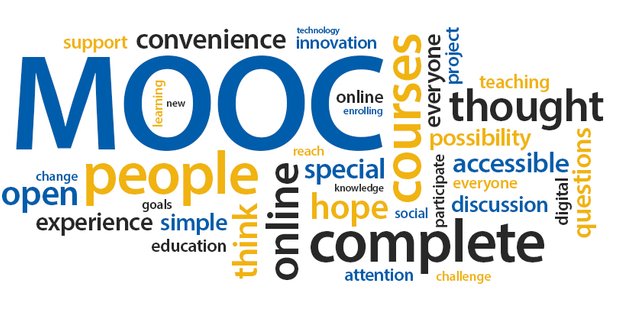M.O.O.C. - Supplemental Instruction (Graduate Student Perspective)

The rise of the MOOC's has been well documented over recent years. What exactly are these? MOOC stands for massive open online courses. As such, the goal of these courses is to distribute "open source" learning materials that can be accessed online.
Universities such as MIT were frontrunners in this regard with their "Open Courseware" offerings. Logging onto MIT to get a couple of lectures in very advanced subjects varying across the entire range of academic offerings was simple. In particular, the offerings given on higher level courses in Math and Physics were readily available. These were complete with notes, slides, lecture videos, and even an open source textbook!
This may seem like no big deal nowadays, but for those of us who are learning advanced quantitative subjects, being able to have a reference from academic leaders at a prestige university such as MIT was a dream.
Now, that dream is a reality. The various MOOC offerings have multiplied rapidly in the last 5 years. Sites such as Coursera, EdX, and Udacity are churning out good to great content regularly. Now, I'm not a fan of the "pay to play" model some of these have adopted lately, but there are workarounds. While many of these outfits have started offering "nanodegrees" (a sequence of 4-7 or more courses strung together in a specific subject) aimed to let those who want to pay retool their professional skills, most of the individual courses can still be audited.
As a student currently working on their 3rd degree, a masters in mathematics, these courses have been invaluable. In the past three years I've taught myself how to program in Python, C++, and R. Not just a baseline understanding, but a proficiency in each of these. These three languages have done wonders for me as my academic career has shifted more and more to the quantitative side.
Of course, for full disclosure, I also use these languages regularly now due to the demands of my current degree, hence that has something to do with my firm grasp on these.
Additionally, I've been able to strengthen my knowledge on things such as web scraping, data wrangling, time series analysis, and probably most importantly: machine learning through MOOC's. I went into graduate courses (statistics) that dealt with some of these subjects and been extremely prepared due to the quality of content available online.
That being said, the combination of high level content and ease of access make MOOC's a winner. For any graduate students in any sort of quantitative subjects, especially those who need to do programming regularly, these courses are perhaps the best way to supplement your education. For everyone else, they are a great (and free!) way to learn some new skills.
An amazing thing would be if our communities could somehow find a way to make all this great information that is available out there even easier to find and access. No intermediary company like Coursera. No workarounds. Just the information, readily accessible. Perhaps that is something to look forward to in the future.
If there's any interest, I can compile a list of courses that I think are beneficial. I've taken at least 30 of these courses, so I'd be happy to help! Just leave a comment below.
Congratulations @dudewah! You have received a personal award!
Click on the badge to view your Board of Honor.
Congratulations @dudewah! You received a personal award!
You can view your badges on your Steem Board and compare to others on the Steem Ranking
Vote for @Steemitboard as a witness to get one more award and increased upvotes!
Good thoughts